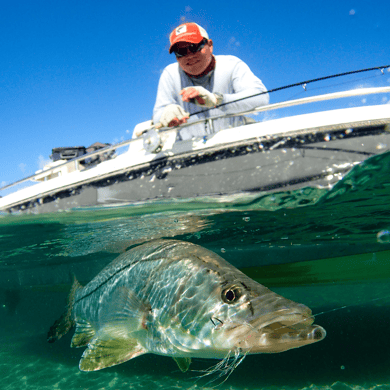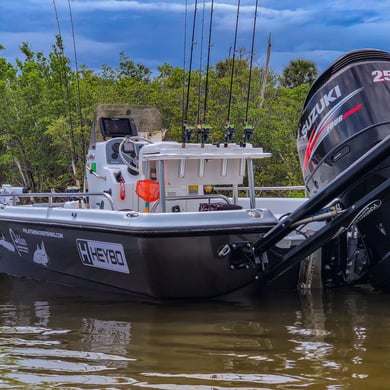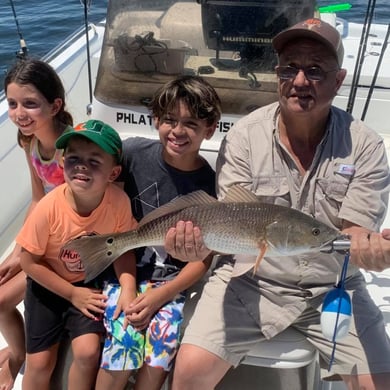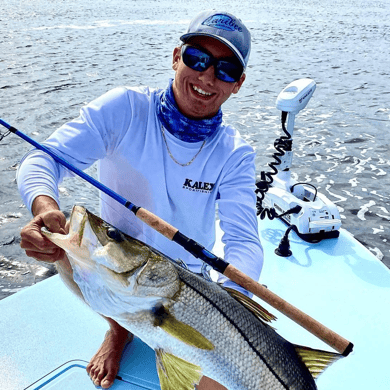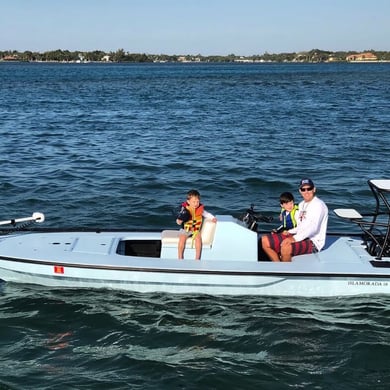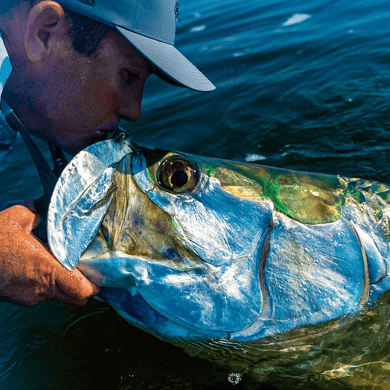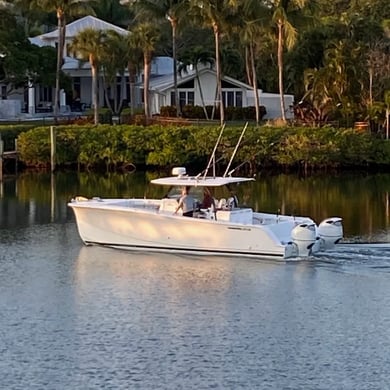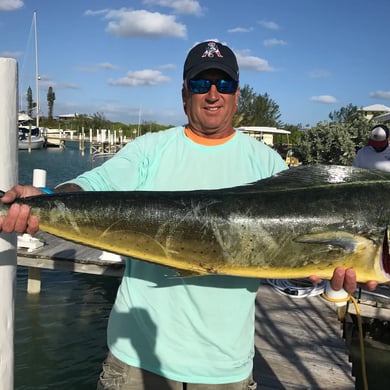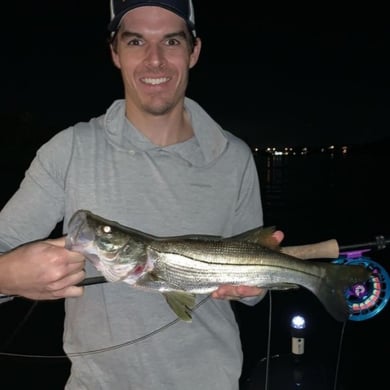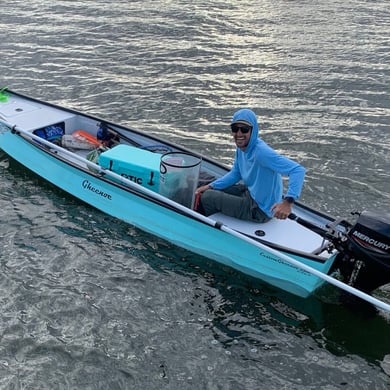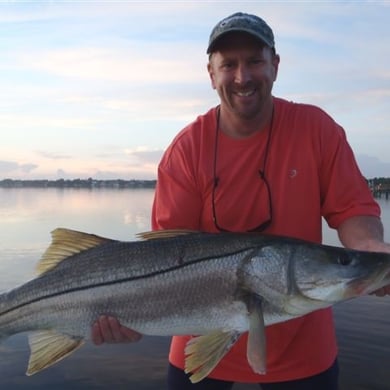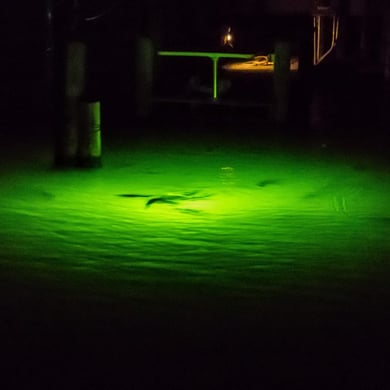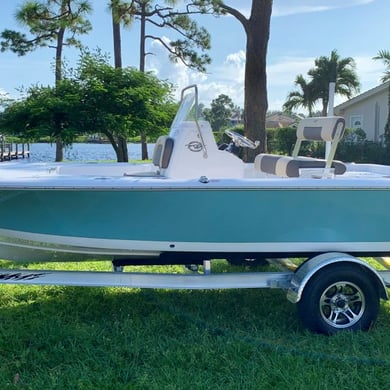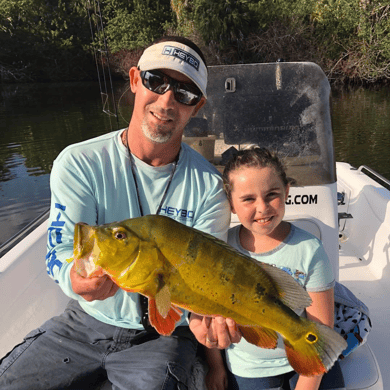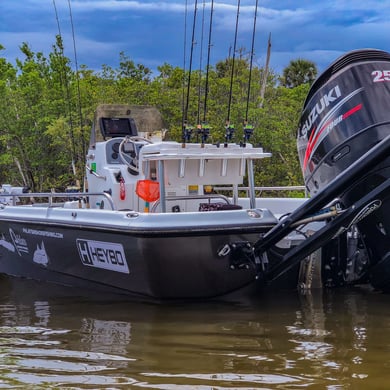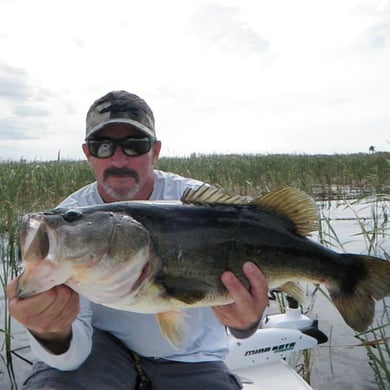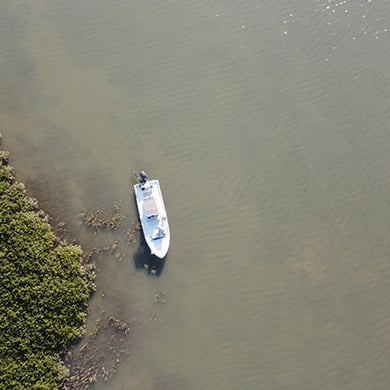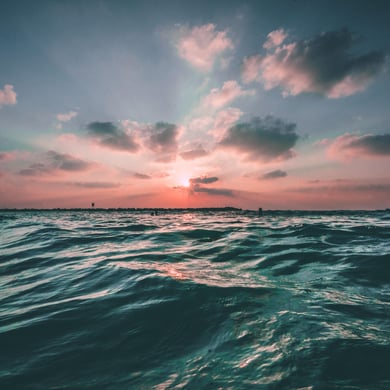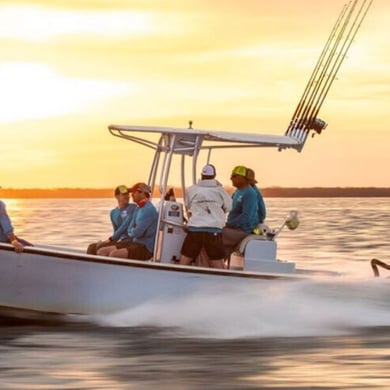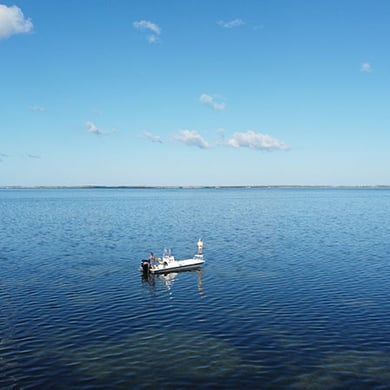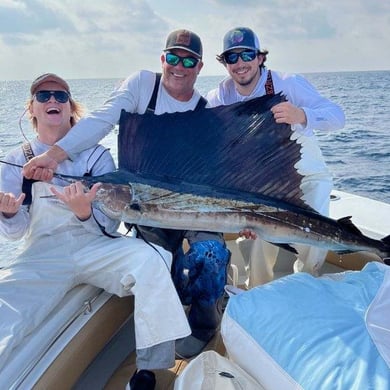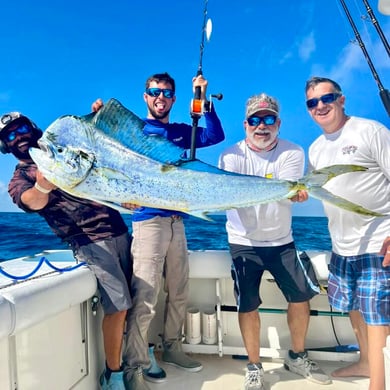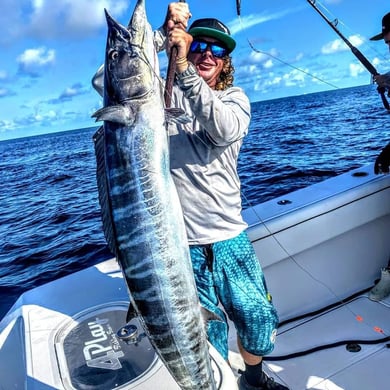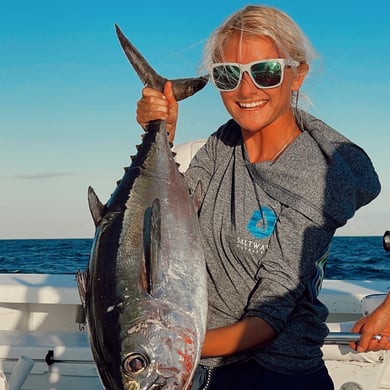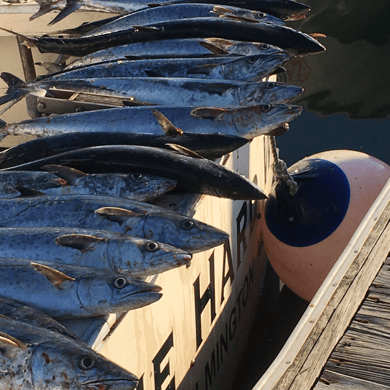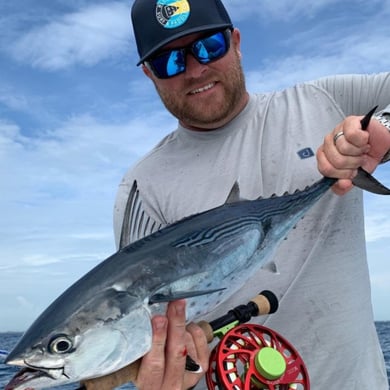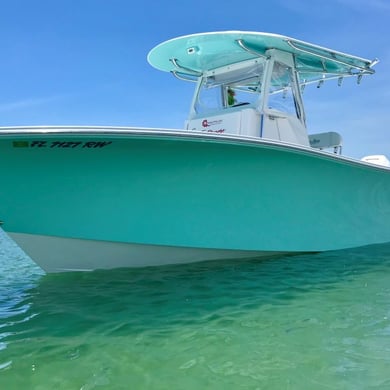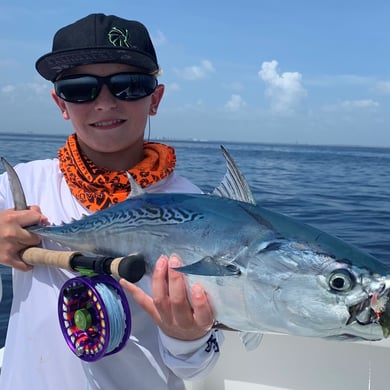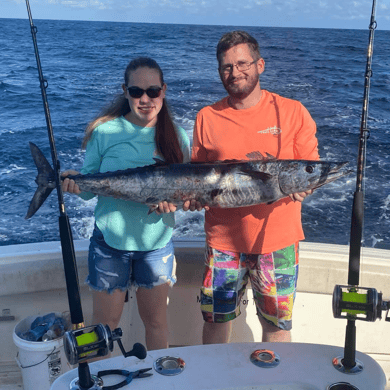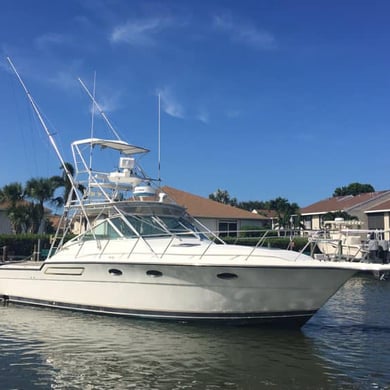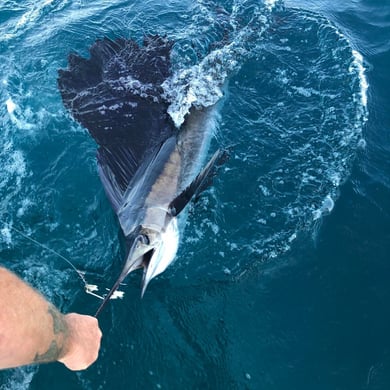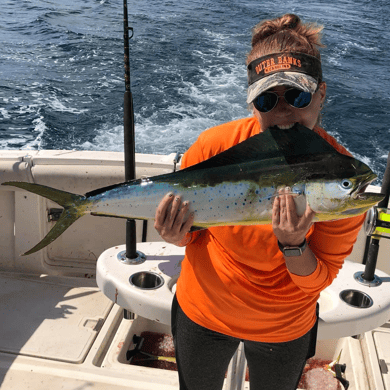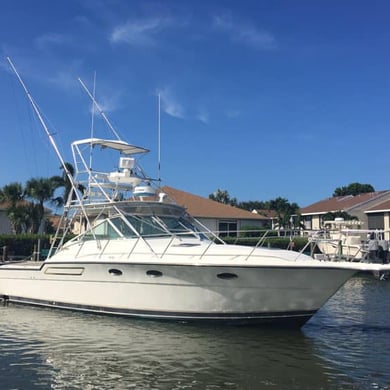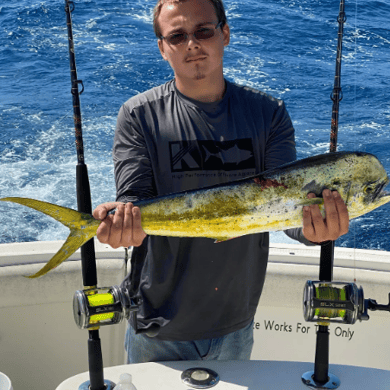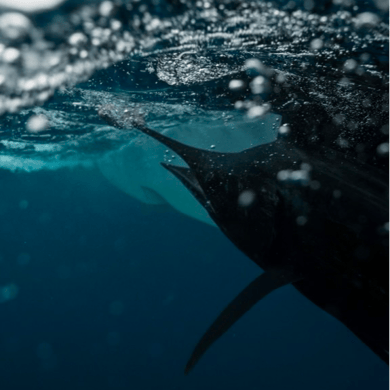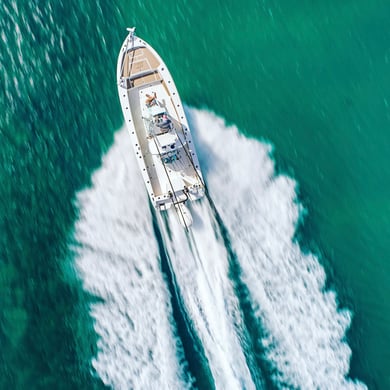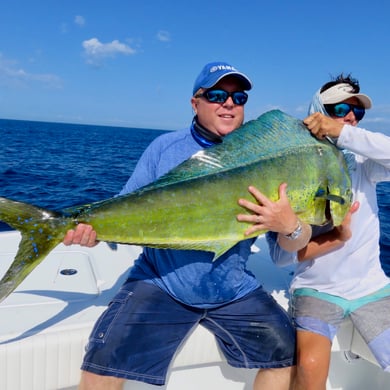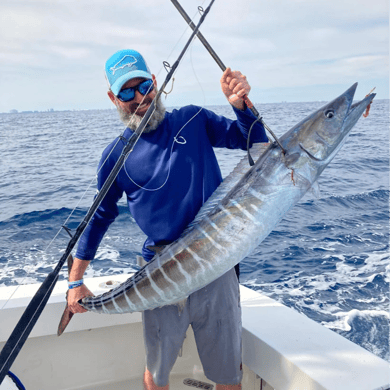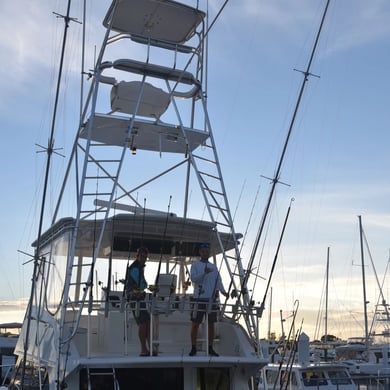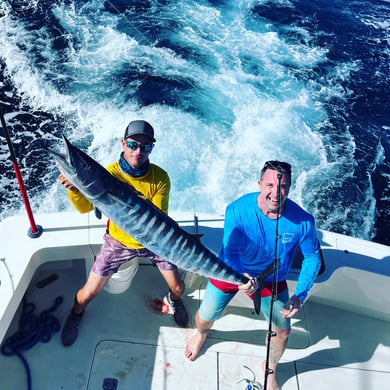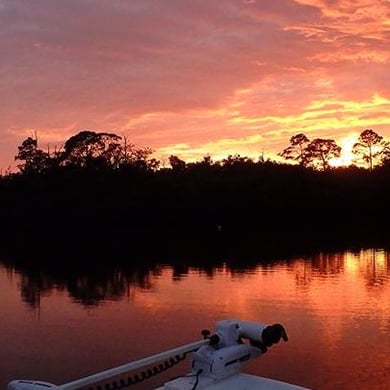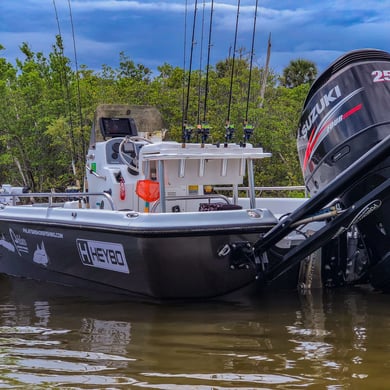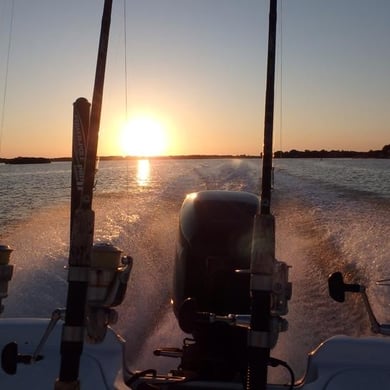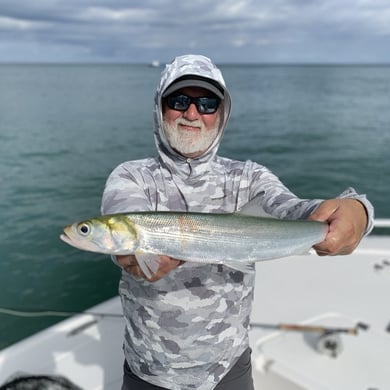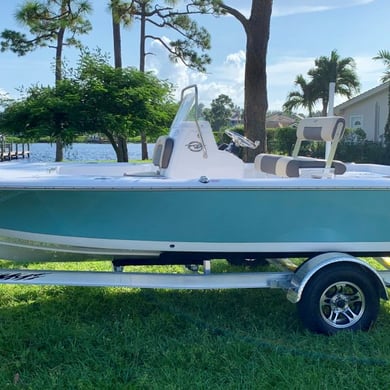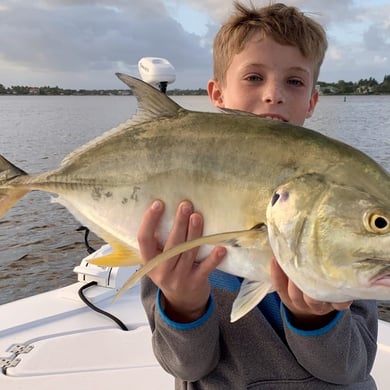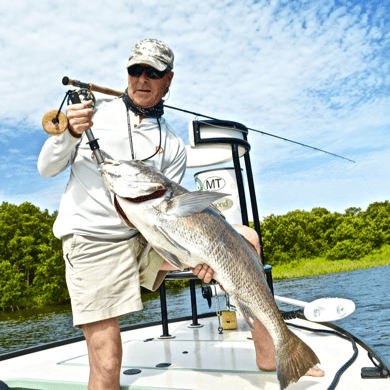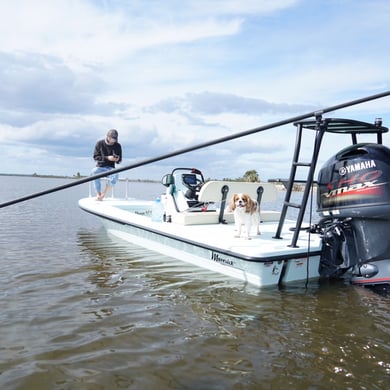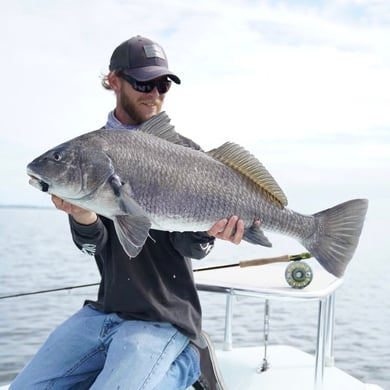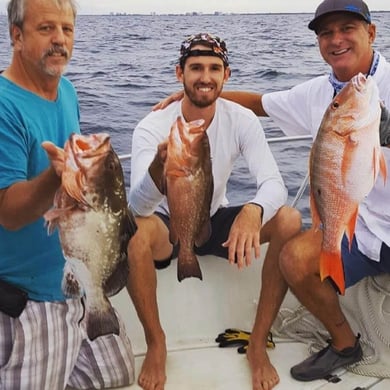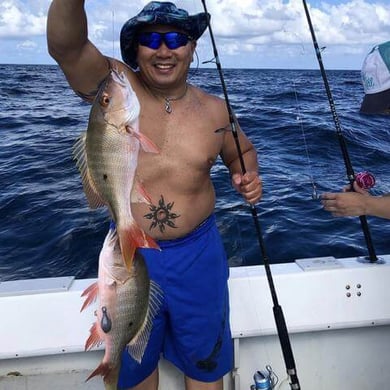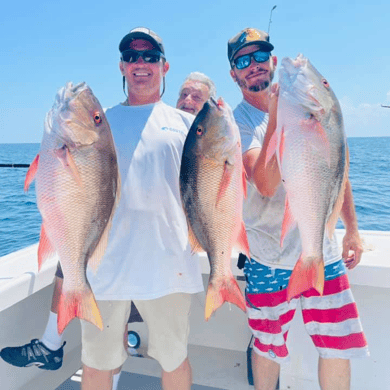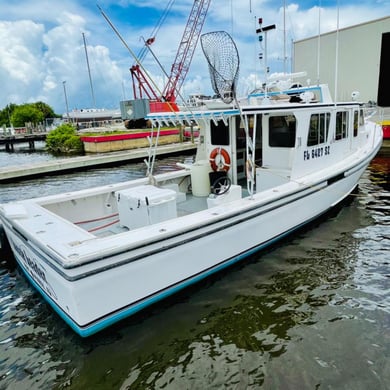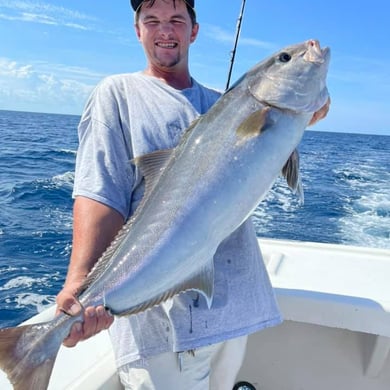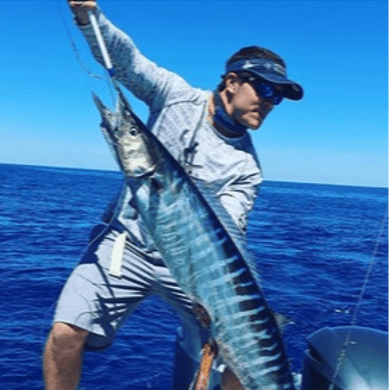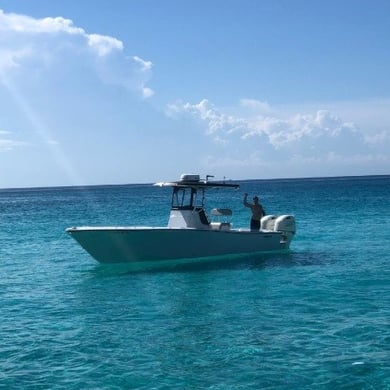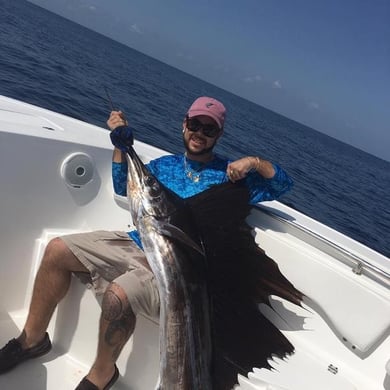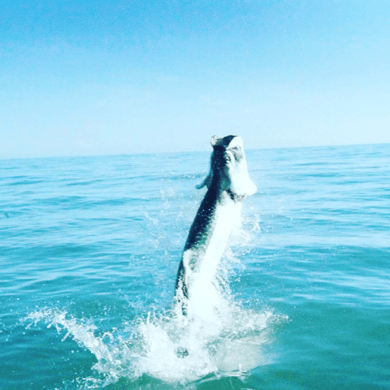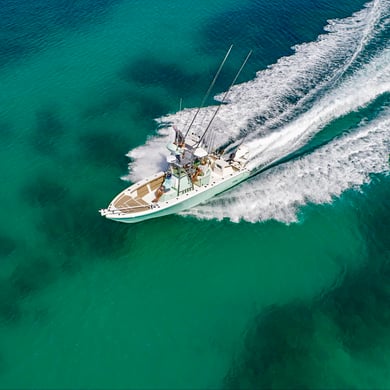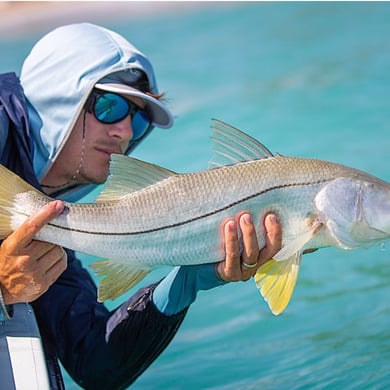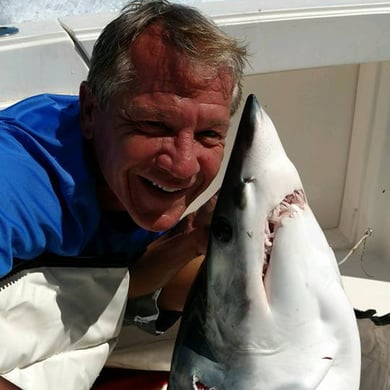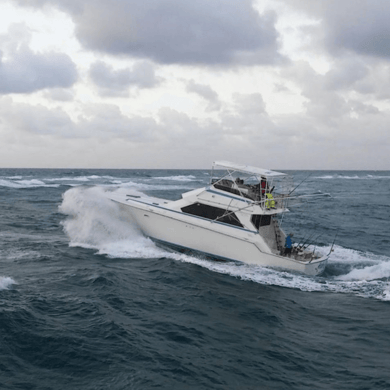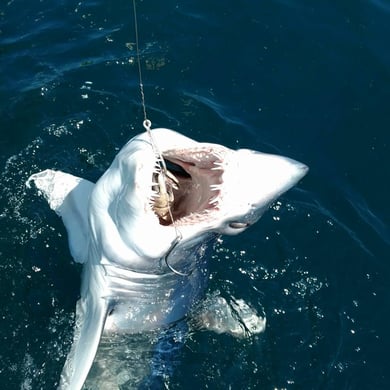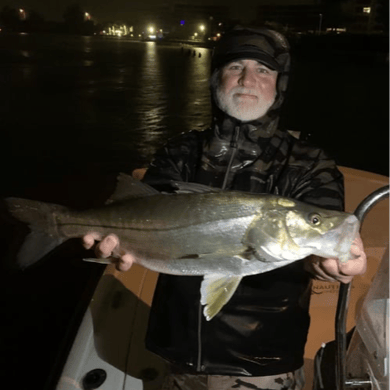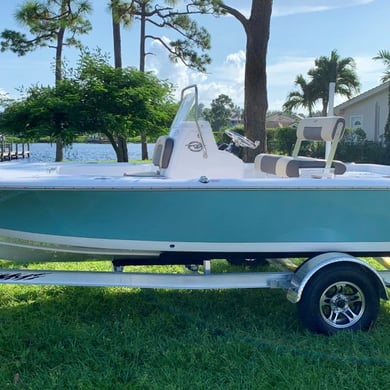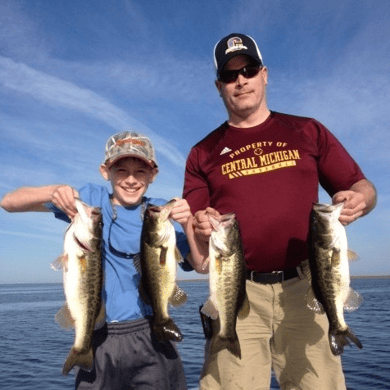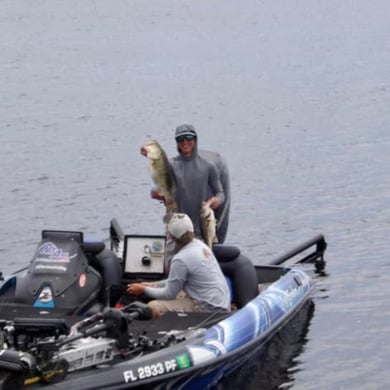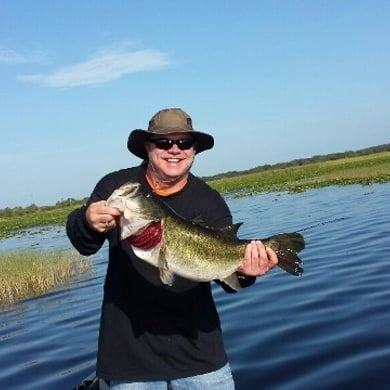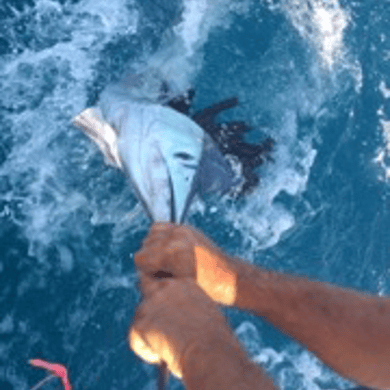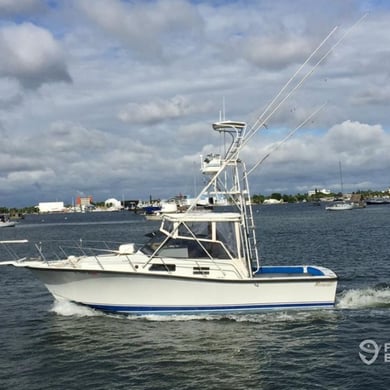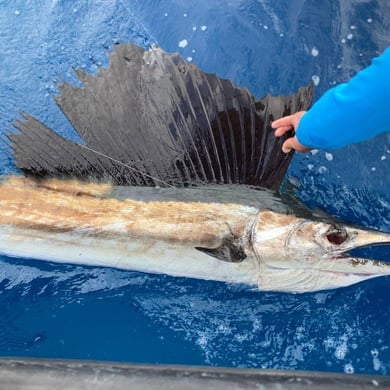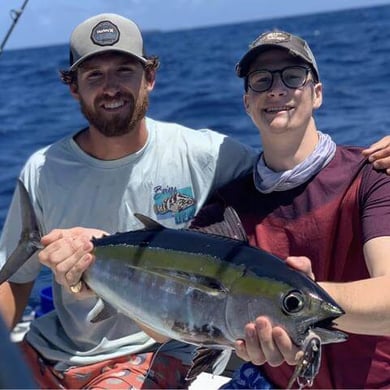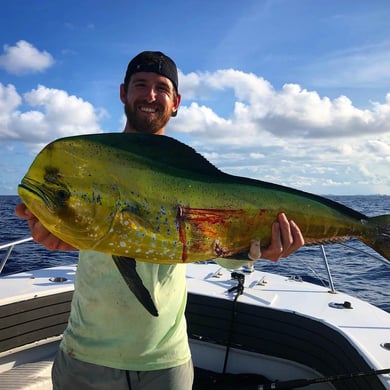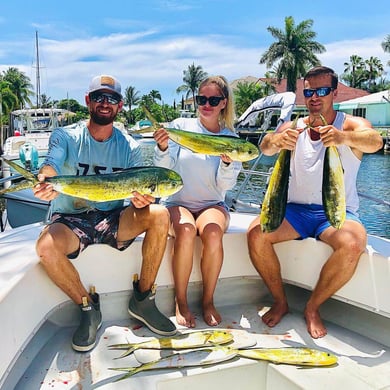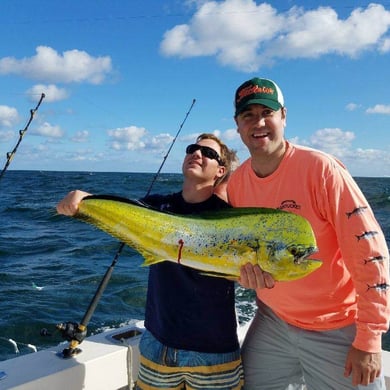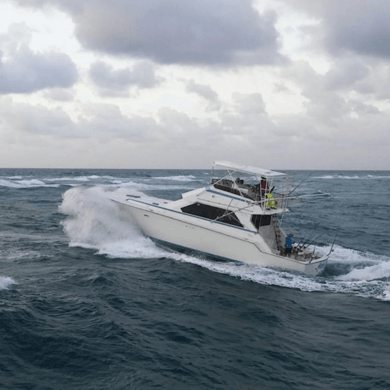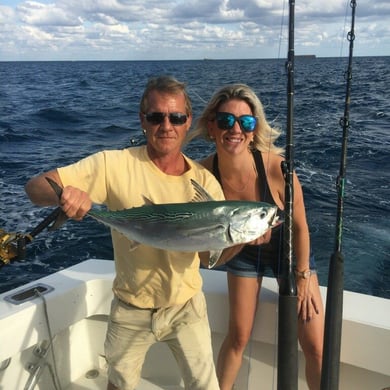Damn Good Guides
Experts Available 24/7
100% Weather Guarantee
Recently Booked Fishing Charters In Jensen Beach Park
Top Types of Trips in Jensen Beach Park
Top Species for Fishing in Jensen Beach Park
“Our Damn Good Guides go above and beyond, and we’ve handpicked every single one. We’re passionate about the outdoors and look forward to getting you out on the trip of a lifetime, every time.”
Jonathan and Attison | Co-founders | Austin, Texas
Deep Sea Fishing Charters In Jensen Beach Park
Inshore Fishing Charters In Jensen Beach Park
Nearshore Fishing Charters In Jensen Beach Park
More Fishing Charters In Jensen Beach Park
Need a Place to Stay?
Everything to Know About Booking a Fishing Charter in Jensen Beach Park
What are the best fishing charters in Jensen Beach Park?
The best fishing charters in Jensen Beach Park are:
Why should I book a fishing charter in Jensen Beach Park with Captain Experiences?
Our Damn Good Guides currently offer 33 trips in Jensen Beach Park, and the most popular trips in the area are Inshore Saltwater Trip guided by Craig, Jupiter Fly Fishing with Dingo guided by Jarad, and Sport Fishing Trip - 31' Jupiter guided by Tyler.
Our guides in Jensen Beach Park are rated a 5 out of 5 based on 3784 verified reviews on Captain Experiences.
All guides on Captain Experiences are vetted by our team. You can access their reviews, click through trip photos, read bios to get to know them, and preview trip details like species, techniques, group sizes, boat specs and more.
Looking for kid friendly charters / fishing lessons in Jensen Beach Park? Check out our beginner and family friendly charters in Jensen Beach Park.
What types of fishing charters are common in Jensen Beach Park?
Deep Sea fishing is the most popular type of fishing in Jensen Beach Park as well as inshore fishing, nearshore fishing, and river fishing.
The most commonly sought after species in Jensen Beach Park are: 1. sailfish, 2. mahi mahi, 3. wahoo, 4. blackfin tuna, and 5. kingfish.
The most common fishing techniques in Jensen Beach Park are live bait fishing, artificial lure fishing, and trolling but heavy tackle fishing and bottom fishing are popular as well.
How much do Jensen Beach Park fishing charters cost?
Prices in Jensen Beach Park can range anywhere from about $500 to $1,950, but the average price for a half day trip in Jensen Beach Park is $730. The average price for a full day trip in Jensen Beach Park is $1,310.
Is booking a fishing guide worth the money?
Hiring a guide provides a number of benefits and many choose to book a fishing guide for a combination of experience, local knowledge, convenience, and cost-effectiveness.
Working with experienced fishing guides who know the best local spots and techniques can dramatically increase your odds of a great day. Having someone who is on the water every day and knows the area like the back of their hand is going to give you the best chances of success.
Booking a guide is also more cost effective, especially if you only get out a handful of times per year. When you consider all of the costs you would incur on your own such as the price of a boat, maintenance, insurance, gas, high-quality gear and tackle, repairs, and more, you’ll find that DIY is sometimes not worth the expense.
Even if you’ve got a great setup already in your home waters, booking a guide also provides a great opportunity to experience new techniques, new locations, or even a chance at a new target species to knock off the bucket list.
What month is best for fishing in Jensen Beach Park?
The most popular season for fishing in Jensen Beach Park is spring, and most anglers book their trips 10 days in advance.
Do I need a Jensen Beach Park fishing license and what are the bag limits in Jensen Beach Park?
See here for more information on fishing licenses in Jensen Beach Park, bag limits for target species, and fishing season regulations in Jensen Beach Park. When in doubt, your fishing guide will always know the right rules and regulations in Jensen Beach Park.
What is fishing in Jensen Beach Park about?
Jensen Beach Park, located on Florida's Treasure Coast, offers anglers a serene and picturesque setting for fishing adventures. Nestled along the shores of the Indian River Lagoon, this tranquil park provides access to a diverse range of fishing opportunities, from freshwater fishing in the lagoon's brackish waters to saltwater fishing along the nearby beaches and jetties. Whether you're casting a line from the park's fishing pier or exploring the mangrove-lined creeks and channels by kayak, Jensen Beach Park promises a rewarding angling experience against the backdrop of its lush coastal landscape.
One of the main draws for anglers at Jensen Beach Park is the abundance of species that inhabit its waters year-round. In the Indian River Lagoon, anglers can target a variety of fish species, including snook, redfish, tarpon, and spotted seatrout, among others. These prized gamefish can be caught using a variety of techniques, from live bait fishing and lure casting to fly-fishing and trolling. Whether you're a novice angler or a seasoned pro, Jensen Beach Park offers plenty of opportunities to hook into some impressive catches.
Beyond the lagoon, Jensen Beach Park also provides access to the nearby Atlantic Ocean, where anglers can pursue a variety of saltwater species along the sandy beaches and rocky jetties. From pompano and snapper to cobia and kingfish, the waters off Jensen Beach offer a wealth of fishing opportunities for anglers of all skill levels. Whether you're surf fishing from the shore or casting from the jetties, Jensen Beach Park provides a peaceful and scenic backdrop for a memorable day of fishing along Florida's beautiful Treasure Coast.
What are the most popular months to fish in Jensen Beach Park?
Fishing seasons in Jensen Beach Park, situated on Florida's Treasure Coast, offer anglers a dynamic and ever-changing array of opportunities throughout the year. Spring heralds the arrival of warmer temperatures and the resurgence of inshore fishing activity in the Indian River Lagoon. As the waters warm, species like snook, redfish, and spotted seatrout become more active, providing anglers with plenty of action in the shallow waters and along the mangrove-lined shorelines. Additionally, spring marks the start of the tarpon migration along the coast, offering anglers the chance to hook into these prized gamefish as they move through the area.
Summer brings with it the peak of fishing season in Jensen Beach Park, as long days and balmy temperatures create ideal conditions for anglers to hit the water. In the Indian River Lagoon, the action remains hot as snook, redfish, and spotted seatrout continue to provide plenty of opportunities for anglers to hook into some impressive catches. Additionally, summer sees the arrival of schools of baitfish along the coast, attracting a variety of predatory species like kingfish, tarpon, and sharks to the area. Whether you're fishing from the park's fishing pier, exploring the lagoon by kayak, or casting from the shore, summer offers endless possibilities for anglers to experience the excitement of fishing in Jensen Beach Park.
As summer transitions into fall, fishing in Jensen Beach Park takes on a new dimension as cooler temperatures trigger changes in fish behavior and migration patterns. Inshore, redfish, snook, and spotted seatrout remain active, providing anglers with continued opportunities to hook into these prized gamefish. Additionally, fall marks the start of the annual mullet run along the coast, drawing in a variety of predatory species like tarpon, snook, and jack crevalle. Whether you're casting from the park's fishing pier or exploring the lagoon by kayak, fall offers a diverse range of fishing opportunities for anglers of all skill levels in Jensen Beach Park.
What types of fishing are popular in Jensen Beach Park?
Jensen Beach Park, nestled along Florida's Treasure Coast, offers anglers a plethora of fishing opportunities, each showcasing the diverse ecosystem of the region. Inshore fishing reigns supreme, with the expansive Indian River Lagoon providing ample habitat for a variety of species such as snook, redfish, and spotted seatrout. Anglers can explore the lagoon's intricate network of mangrove-lined creeks and flats, either by kayak or from the park's fishing pier, casting bait or lures to entice these prized gamefish.
For those seeking a more adventurous experience, surf fishing along the nearby beaches is a popular choice. From the sandy shores of Jensen Beach Park, anglers can cast their lines into the surf in pursuit of species like pompano, whiting, and snook. Whether you're soaking bait on the bottom or casting lures into the breaking waves, surf fishing offers a laid-back and scenic way to enjoy the coastal beauty of the Treasure Coast while waiting for the next big bite.
Additionally, Jensen Beach Park provides access to the nearby Atlantic Ocean, where anglers can pursue a variety of saltwater species along the rocky jetties and offshore reefs. From snapper and grouper to cobia and kingfish, the waters off Jensen Beach offer a wealth of fishing opportunities for anglers of all skill levels. Whether you're trolling for big game species or bottom fishing over wrecks and reefs, Jensen Beach Park provides a peaceful and scenic backdrop for a memorable day of fishing along Florida's beautiful Treasure Coast.
What species are popular in Jensen Beach Park?
Jensen Beach Park, located on Florida's Treasure Coast, offers anglers a diverse range of fishing species to target throughout the year. One of the most sought-after catches in the area is the snook, known for its aggressive strikes and powerful fights. These elusive gamefish inhabit the mangrove-lined creeks and channels of the Indian River Lagoon, providing anglers with thrilling opportunities to hook into some impressive catches. Whether you're casting live bait along the shoreline or working artificial lures in the deeper channels, targeting snook in Jensen Beach Park promises excitement and adventure.
Redfish are another prized species for anglers visiting Jensen Beach Park, valued for both their sporting qualities and delicious flesh. These hard-fighting fish can be found prowling the shallow waters of the lagoon, particularly around oyster bars and mangrove islands. Anglers often target redfish with live bait such as shrimp or mullet, although artificial lures like spoons and soft plastics can also be effective. Whether you're wading the flats or fishing from a kayak, pursuing redfish in Jensen Beach Park offers a thrilling challenge and the chance to reel in some impressive catches.
Spotted seatrout, or "specks," are also abundant in the waters surrounding Jensen Beach Park, providing anglers with plenty of opportunities for action. These voracious predators can be found in the deeper channels of the lagoon, as well as along the grass flats and sandy drop-offs. Anglers typically target speckled trout with live bait such as shrimp or mullet, although artificial lures like soft plastics and topwater plugs can also be effective. Whether you're casting from the park's fishing pier or exploring the lagoon by kayak, targeting spotted seatrout in Jensen Beach Park offers a fun and rewarding angling experience for all.
Does Jensen Beach Park have good fishing?
Jensen Beach Park, located on Florida's Treasure Coast, offers anglers a picturesque setting and excellent fishing opportunities along the Atlantic coast. Situated near the town of Jensen Beach, this park is known for its expansive sandy beaches, scenic dunes, and access to the Indian River Lagoon and St. Lucie River. Anglers frequent Jensen Beach Park year-round to enjoy a variety of fishing experiences, from surf fishing along the shore to casting lines from the park's fishing pier or exploring nearby tidal flats and mangrove-lined creeks.
One of the main attractions of fishing at Jensen Beach Park is its diverse fishery and abundant marine life. Anglers can target a wide range of species such as snook, tarpon, redfish, trout, and pompano in the lagoon and river waters. The park's location along the Indian River Lagoon, one of North America's most diverse estuarine systems, provides rich habitats that support healthy populations of fish throughout the year. Whether fishing from shore or a boat, anglers can enjoy scenic views and peaceful surroundings while pursuing their favorite catches.
Beyond its fishing appeal, Jensen Beach Park offers a family-friendly environment with amenities such as picnic areas, playgrounds, and nature trails. Anglers can relax on the beach, take a leisurely stroll along the shoreline, or enjoy birdwatching and wildlife observation in the park's natural habitats. Nearby attractions include historic downtown Jensen Beach with its shops and restaurants, making it convenient for anglers to explore and unwind after a day on the water. With its tranquil setting, diverse fishing opportunities, and scenic beauty, Jensen Beach Park remains a popular destination for anglers seeking both relaxation and adventure on Florida's east coast.
Recent Reviews
Top Targeted Fishing Species in Jensen Beach Park
- Amberjack
- Barracuda
- Black Drum
- Blackfin Tuna
- Blacktip Shark
- Blue Marlin
- Bluefish
- Bonefish
- Bonito
- Bonnethead Shark
- Bull Shark
- Cobia
- Crappie
- False Albacore
- Gag Grouper
- Goliath Grouper
- Hammerhead Shark
- Horse-eye Jack
- Jack Crevalle
- Kingfish
- Ladyfish
- Lane Snapper
- Largemouth Bass
- Lemon Shark
- Mahi Mahi
- Mangrove Snapper
- Mutton Snapper
- Peacock Bass
- Permit
- Red Grouper
- Red Snapper
- Redfish
- Sailfish
- Snook
- Spanish Mackerel
- Swordfish
- Tarpon
- Tiger Shark
- Vermillion Snapper
- Wahoo
- White Marlin
- Yellowfin Tuna
- Yellowtail Amberjack
- Yellowtail Snapper
Top Targeted Hunting Species in Jensen Beach Park
Top Fishing Techniques in Jensen Beach Park
- Artificial Lure Fishing
- Bottom Fishing
- Cut Bait Fishing
- Deep Dropping
- Drift Fishing
- Fly Fishing
- Heavy Tackle Fishing
- Jigging
- Kite Fishing
- Light Tackle Fishing
- Live Bait Fishing
- Sight Casting
- Topwater Fishing
- Trolling
Top Hunting Techniques in Jensen Beach Park
- Hunting With Dogs
- Shotgun Hunting
Top Types of Hunting in Jensen Beach Park
Featured Cities
- Fishing Charters Near Me
- Austin Fishing Guides
- Biloxi Fishing Charters
- Bradenton Fishing Charters
- Cabo San Lucas Fishing Charters
- Cancun Fishing Charters
- Cape Coral Fishing Charters
- Charleston Fishing Charters
- Clearwater Fishing Charters
- Corpus Christi Fishing Charters
- Dauphin Island Fishing Charters
- Daytona Beach Fishing Charters
- Destin Fishing Charters
- Fort Lauderdale Fishing Charters
- Fort Myers Fishing Charters
- Fort Walton Beach Fishing Charters
- Galveston Fishing Charters
- Gulf Shores Fishing Charters
- Hatteras Fishing Charters
- Hilton Head Fishing Charters
- Islamorada Fishing Charters
- Jacksonville Fishing Charters
- Jupiter Fishing Charters
- Key Largo Fishing Charters
- Key West Fishing Charters
- Kona Fishing Charters
- Madeira Beach Fishing Charters
- Marathon Fishing Charters
- Marco Island Fishing Charters
- Miami Fishing Charters
- Montauk Fishing Charters
- Morehead City Fishing Charters
- Naples Fishing Charters
- New Orleans Fishing Charters
- New Smyrna Beach Fishing Charters
- Orange Beach Fishing Charters
- Panama City Beach Fishing Charters
- Pensacola Fishing Charters
- Pompano Beach Fishing Charters
- Port Aransas Fishing Charters
- Rockport Fishing Charters
- San Diego Fishing Charters
- San Juan Fishing Charters
- Sarasota Fishing Charters
- South Padre Island Fishing Charters
- St. Petersburg Fishing Charters
- Tampa Fishing Charters
- Tarpon Springs Fishing Charters
- Venice Fishing Charters
- Virginia Beach Fishing Charters
Didn't Find What You Were Looking For?
Our guides are Damn Good Guides, which means they’re vetted by our team of outdoor experts who know them on a first-name basis. We hand pick each and every one of them, and our network spans all across the US and beyond.
The proof is in the pudding, and we’re incredibly proud of our 4.9 / 5 average review score. Hit the button below to see more trip options:
